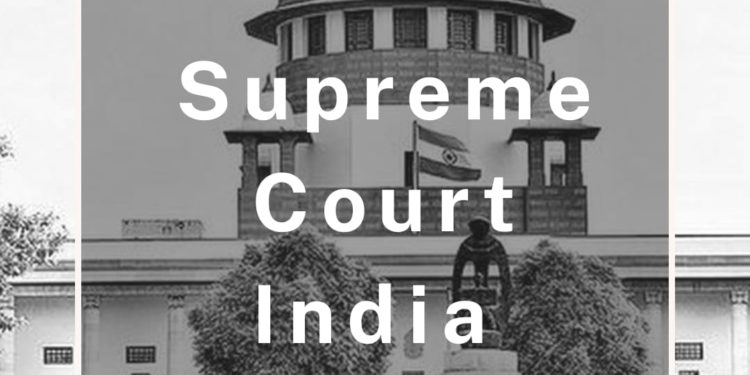In its recent judgement last week, the Supreme Court has acquitted a man who was convicted by the Trial Court and the High Court in a dowry death case.
The appellant was charged of having committed offences punishable under Sections 304-B read with 498A IPC, and was tried in Sessions Trial No.116/1999
Case:
Marriage took place in early 1997 and the accused’s wife had died by setting herself afire by pouring kerosene oil upon herself within 1.5 years of marriage. The dying declaration showed that the immediate cause for the deceased to set herself afire was the domestic quarrel with the husband.
Both the trial court and the Chhattisgarh High Court took verified this dying declaration and depositions of some witnesses to convict the accused under Sections 304-B and 498-A IPC. Subsequently, the husband was sentenced to rigorous imprisonment for 10-years.
Supreme Court Judgement
The counsel for the accused brought to the notice of the apex court that the dying declaration revealed that the deceased herself poured kerosene oil upon her and set herself afire and that the dying declaration was well supported by the testimony of the concerned doctor. He contended that the vague allegations against the accused by some witnesses could not be taken to be sufficient proof of dowry related harassment.
The bench comprising Justices L. Nageswara Rao, Vineet Saran and S. Ravindra Bhat, allowing the appeal, said:
ALSO READ –
READ ORDER | Supreme Court Acquits Relatives Of Husband Who Were Falsely Implicated In Dowry Death Case
The dying declaration shows that the immediate cause for the deceased to set herself afire was the domestic quarrel with the husband. Not only does the dying declaration give details as to how the deceased suffered burn injuries but also discloses the immediate cause for her to take the extreme step.
There is nothing on record to indicate that the dying declaration was obtained by fraud or misrepresentation or that the statement was not correctly recorded. It was recorded by a doctor, an independent person and satisfied all the requirements as stated by this Court in Laxman vs. State of Maharashtra1 In the circumstances, the prosecution fell short of making good its case under Sections 304 B and 498-A IPC and the appellant is entitled to benefit of doubt.
We, therefore, allow this appeal, set aside the orders of conviction and sentence and direct that the appellant be set at liberty unless his presence is required in connection with any other offence.
Assistant Civil Surgeon had questioned the wife before dying, as under:-
- Question No.1 What is your name?
- Answer: My name is Ram Kumari
- Question No.2 Where do you live?
- Answer: I live in Masturi
- Question No.3: Has anyone burnt you?
- Answer: No
- Question No.4 Why you got burnt?
- Answer: Due to the reason of household dispute, due to the reason of dispute with the husband (Gharwala)
- Question No.5 How did you get burnt?
- Answer: By pouring kerosene oil by myself, set on fire in the latrine-room
- Question No.6 Are you deposing statement in yourself consciousness?
- Answer: Yes
CLICK ON THE LINK TO READ FULL ORDER
ALSO READ –
http://voiceformenindia.com/in-the-law/impotency-slur-equals-to-mental-cruelty-delhi-hc/
http://voiceformenindia.com/in-the-law/child-custody-to-father-supreme-court/
We are on Telegram. You can also join us on our Facebook Group
Join our Facebook Group or follow us on social media by clicking on the icons below
If you find value in our work, you may choose to donate to Voice For Men Foundation via Milaap OR via UPI: voiceformenindia@hdfcbank (80G tax exemption applicable)






























